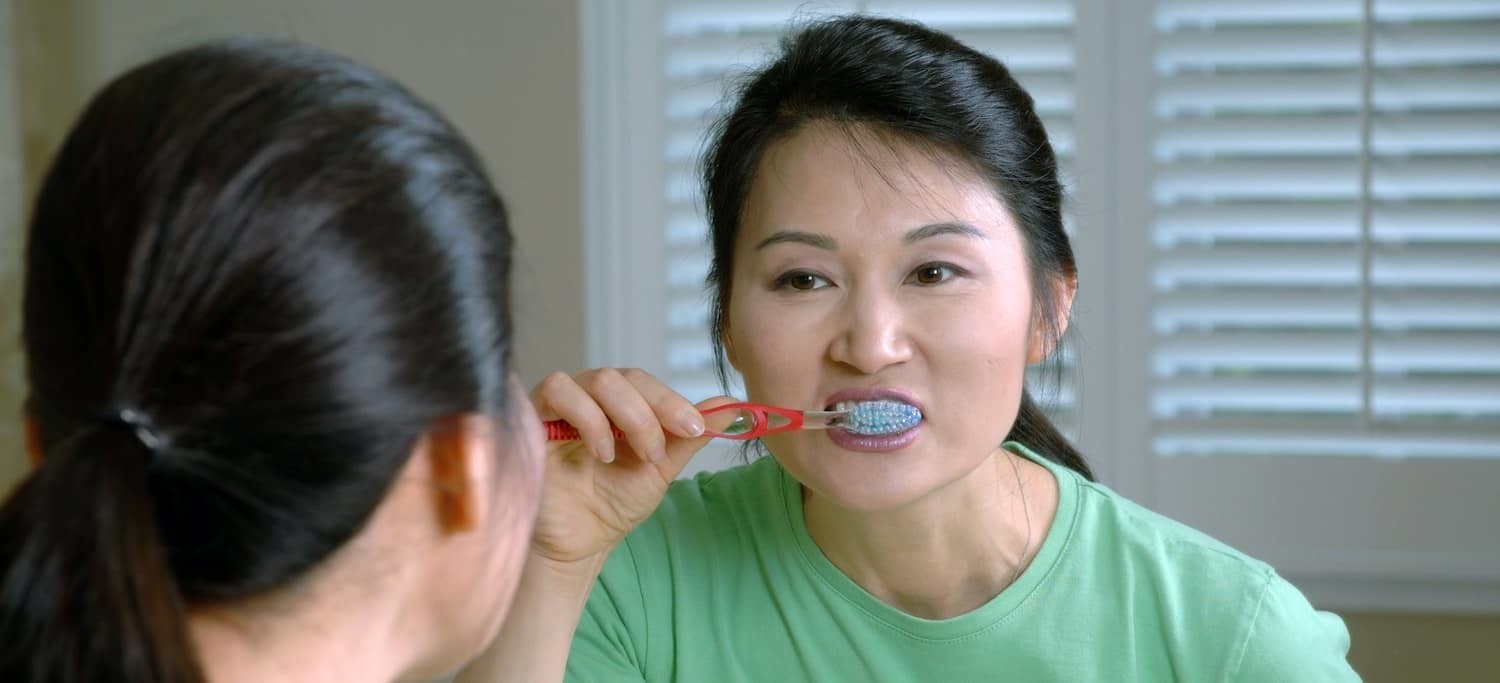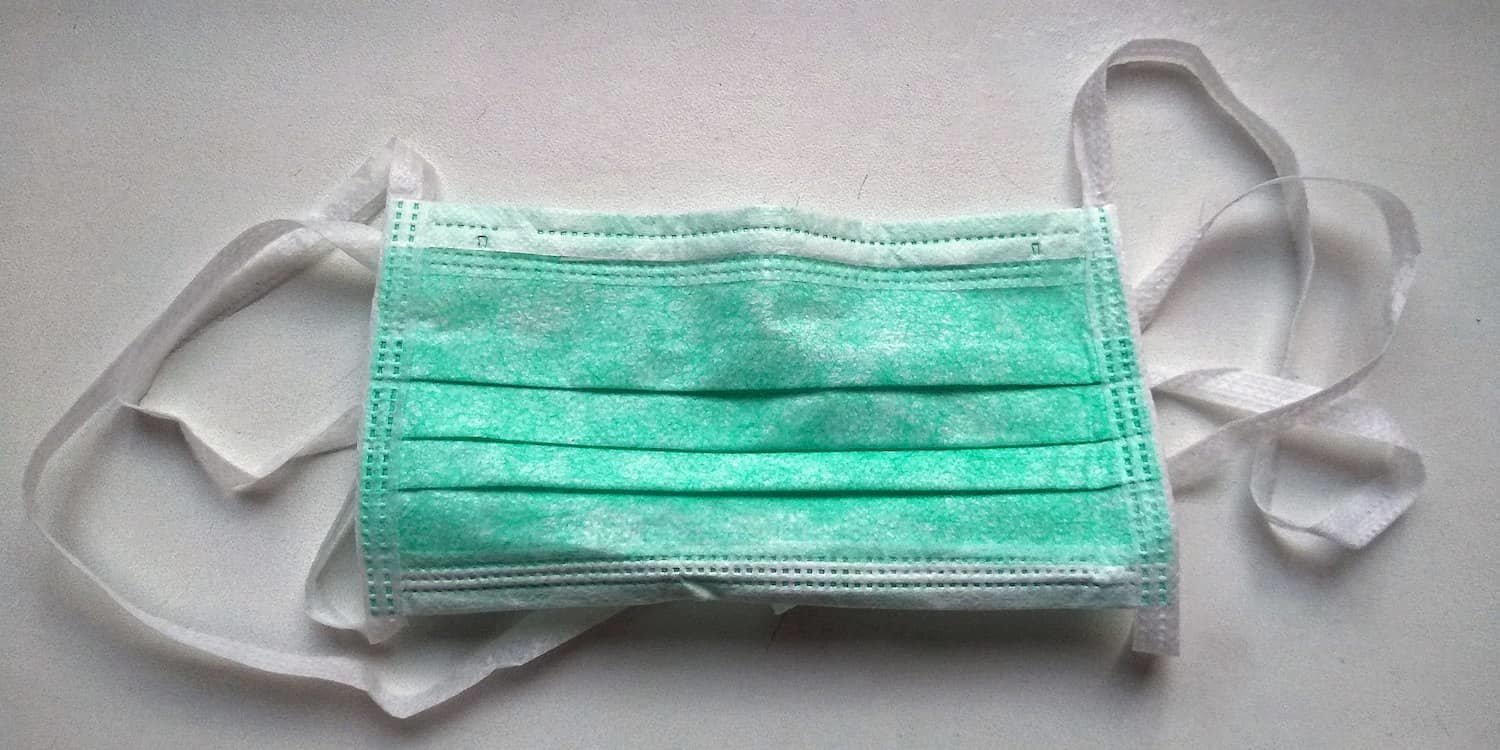Keeping good oral health during the pandemic is not only important, but a critical message that must be adopted in every community. Read on to discover dental hygiene tips to stay healthy during the pandemic, and for caring for a COVID-19 positive patient.
Don’t have time to read the full article? Download the Healthcare Provider’s Guide to Caring for Vulnerable Populations During COVID-19.
Relationship Between Oral Health and COVID-19
Community oral health messages during the COVID-19 pandemic are important to help the public understand the possible emerging relationships of oral health and the novel Coronavirus. When oral health services were abruptly curtailed, community health messages were supposed to ensure that all patients requiring emergency dental care can access appropriate care if their usual dental practice was not able to provide care owing to pandemic influenza-related illness or absence.
Oral Health is Essential
Oral health became emergency treatment only and not viewed as an essential part of health. Elective procedures were halted even though they are important to mitigate problems that potentially evolve into emergencies. Public health, community health, and private health were initially unprepared with coordinated messages to guide oral health practices.
Before the pandemic, multiple public and professional information outlets had studies that showed regular dental care keeps those who are working on the job. Neglected oral health practices can keep even essential workers from working.
65.5% of adults who visited a dentist lost time from work or school from unplanned emergency dental care. Many who lacked regular preventive dental care delayed the diagnosis of oral health problems that became emergencies such as gum problems, tooth decay, tooth loss, and dental abscesses. [1]
Additionally, 45% of the nation’s working parents missed some work due to their kid’s oral health issues, many of which arose from skipped visits to the dentist’s office resulting in complications that required emergency dental appointments to fix. Keeping our essential workers’ mouths healthy is not to be overlooked. [2]
What happens when closures delay dental treatments?
The pandemic delayed oral health care for many, potentially transitioning minor cases into more urgent situations. [3]
- Teeth with cavities that could have been filled are now going to need root canals
- Teeth that could have been treated with root canals are now going to require extractions
- Mouths with oral cancers may have not been discovered and could not receive proper treatment
- Preventive and therapeutic scalings that they need before beginning dental and medical treatments have been delayed
A Clean Mouth is Important Too
Much emphasis has been on having clean hands, however maintaining a clean mouth can be significant during this pandemic too.
Current evidence suggests the novel Coronavirus can be transmitted directly through airborne transmission of droplet and aerosols from the mouth. [4] Contaminated surfaces can then indirectly transmit the virus as studies have shown that they may remain viable for hours to days on certain surfaces. [5]
The mouth is the most common entrance and outlet of droplets and aerosols that contain the virus. It can be spread while sneezing and coughing, however evidence has shown it can be transmitted even when just speaking, shouting, or singing.
Saliva contains discharges from the nasopharynx and the lungs where the Coronavirus is known to be present. [6] Keeping a clean mouth may help in efforts to prevent the spread of the disease.
Oral Healthcare Tips During COVID-19

Since the SARS-CoV-2 virus appears to colonize in the mouth, maintaining good oral hygiene at home is more than just trying to prevent cavities, gum disease, and other conditions.
- Brush your teeth two times for two minutes and use a fluoridated toothpaste*
- Floss and use an antiseptic mouth rinse daily with 1.5% hydrogen peroxide-based rinses (e.g. Colgate Peroxyl, Oragel, etc)
* Many toothpastes contain sodium lauryl sulfate which can be irritating to some, however it has shown to reduce the Coronavirus. [6]
How to Keep a Healthy Mouth
Many of us are overdue for our regular check up during this pandemic. Daily oral care is now ever so important!
- Use fluoridated toothpaste and water to help prevent tooth decay
- Prevent oral conditions by decreasing or eliminating alcohol, tobacco and drug use
- Practice sensible healthy nutrition with less hard and sticky food to help protect teeth
- Don’t overlook any oral problem symptoms and seek care when and where possible as many dental services are now available
- Take advantage of teledentistry consultations which are available from many dental providers
Clean & Disinfect Your Toothbrush
Many people do not realize their toothbrush can harbor bacteria, blood, and saliva. Not only does improper toothbrush care result in poor oral hygiene over time, but it can also spread contagious diseases, such as COVID-19.
The coronavirus can stay on surfaces for up to three days, and this may include toothbrushes. To disinfect your toothbrush daily, rinse it in 0.5 percent hydrogen peroxide [7] for up to 15 minutes. [5] This solution can kill COVID-19 in about one minute. Make sure you rinse off your toothbrush before brushing.
Lastly, don’t forget to replace your toothbrush regularly. Everyone is supposed to replace their electric toothbrush head or disposable toothbrush every 3 to 4 months.
Dental Hygiene Tips for COVID-19 Positive Patients
Oral hygiene should not be neglected during the COVID-19 condition. Here are some tips to stay safe:
- Try to store oral health products separately during illness
- Disinfect all oral health tools and products daily
- Discard and replace the toothbrush and toothpaste after recovery [4]
- Clean your hands before oral care
- Disinfect with hydrogen peroxide or rinse your toothbrush under hot water for a few minutes
- Always dry in an upright position with fresh air
- Never share your toothbrush
- Avoid powered toothbrushes and Water Piks which may produce more aerosols than manual toothbrushes
It has been a big message that washing the hands help prevent contracting COVID-19. Avoid touching the face, lips, mouth, eyes, and ears with potentially contaminated hands. Studies show that people touch their face approximately 23 times in an hour and this can pose a virus threat through mouth, nose, or eyes. [7] When a person’s hands touches their own mouth and have the virus in their saliva, they can potentially transfer it to others. It is this cycle of clean hands and mouth that is important to curb the pandemic.
Does poor oral health have an association with COVID-19?

Four essential risk factors for severe COVID-19 have been identified: diabetes, high blood pressure, heart disease, and obesity. [8] All these have also been associated with poor oral health. If an individual has periodontal disease, the increased risk association for heart disease is 25%, high blood pressure is 20% and 3 times the risk for diabetes. [8]
Evidence also exists on poor oral health and associations with severe respiratory complications. [7] 52% of the deaths occurred in healthy individuals and 20% of those had high oral bacterial levels that may have affected the progress of COVID-19 disease.
Improving oral hygiene and oral health may prevent the potential risk of the airway superinfections of those infected with COVID-19.
How to Treat “Mask Mouth”
Wearing a mask helps limit droplets and aerosols from our nose and mouth from transferring to one another. Some have become aware of mouth odors when wearing a face mask. More than 50% of the general population have halitosis or bad breath. [9]
Wearing a mask can cause the saliva and moist air to cling and dry onto masks to cause a bad smell. Many people breath through their mouths when wearing a mask which can cause dryness, produce mouth odors, and increase risk for cavities.
Related Reading: How to Treat Dry Mouth in Older Patients
Remember to focus on good oral hygiene at home, to have a healthy mouth and reduce odors from mask mouth. [10]
- Brush your tongue and rinse with a good mouthwash
- Watch what you eat as that can contribute to a smelly mouth
- Check your medications which can cause a dry mouth and add to bad breath
- Keep hydrated and find dry mouth products to use
- Quit smoking if you’re thinking about that right now as that can give you lingering odors and increase your risk for oral problems
- Keep your mask clean and fresh
- Contact a dental professional for guidance if you have gum problems that cause odors
Oral health is critical to people’s mental health, physical health, and their well-being.
Earn a Postgraduate Degree in Community Oral Health
Do you like learning about a variety of issues while focused on the unique needs of community health dental programs? Consider enrolling in the Herman Ostrow School of Dentistry of USC’s online, competency-based certificate or master’s program in Community Oral Health.
References
[1] Kelekar U, Naavaal S. Hours Lost to Planned and Unplanned Dental Visits Among US Adults. Prev Chronic Dis 2018;15:170225.
[2] Delta Dental Children’s Oral Health Survey (2017, September 18)
[3]. Dentists say patients are suffering because routine care can’t resume due to coronavirus, COVID-19 pandemic. (2020, May 12)
[4] Kai-Wang To, Kelvin. et al. Consistent Detection of 2019 Novel Coronavirus in Saliva, Clinical Infectious Diseases, Volume 71, Issue 15, 1 August 2020, Pages 841–843
[5] Cai, J., Sun, W., Huang, J., Gamber, M., Wu, J., & He, G. (2020). Indirect Virus Transmission in Cluster of COVID-19 Cases, Wenzhou, China, 2020. Emerging Infectious Diseases, 26(6), 1343-1345. https://dx.doi.org/10.3201/eid2606.200412.
[6] Bains, Vivek Kumar, and Rhythm Bains. “Is oral hygiene as important as hand hygiene during COVID-19 pandemic?.” Asian Journal of Oral Health and Allied Sciences 10 (2020).
[7] Oral Hygiene & Coronavirus. Retrieved from https://www.newmouth.com/blog/oral-hygiene-covid19/ on July 6, 2020
[8] Sampson, V., Kamona, N. & Sampson, A. Could there be a link between oral hygiene and the severity of SARS-CoV-2 infections?. Br Dent J 228, 971–975 (2020)
[9] Aylıkcı BU, Colak H. Halitosis: From diagnosis to management. J Nat Sci Biol Med. 2013;4(1):14-23. doi:10.4103/0976-9668.107255
[10] Mask Mouth during COVID-19. Retrieved from https://www.unitedconcordia.com/dental-insurance/dental-health/conditions/covid19/mask-mouth/ on July 10, 2020.



